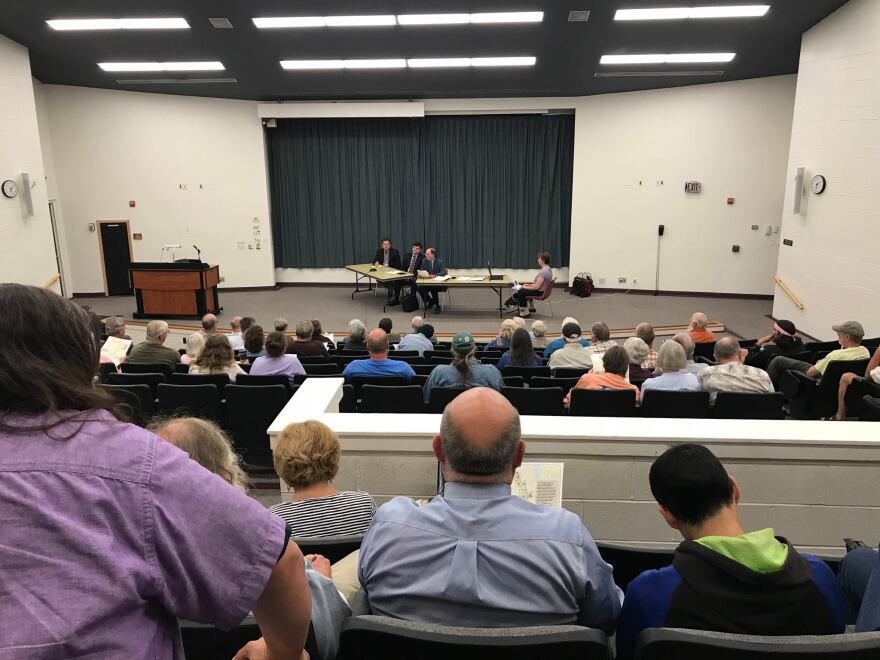About 200 people turned out Friday night for a pair of hearings held by the Maine Public Utilities Commission — one in Farmington and one in the Forks — on Central Maine Power’s proposed transmission line known as New England Clean Energy Connect.It’s a 145-mile power line that would bring Canadian hydropower through western Maine to Massachusetts.
While the majority of those who spoke Friday were opposed to the plan, CMP spokesman John Carroll says there seems to be some consensus on at least one topic: climate change.
“I don’t think anyone got up and disputed the idea that climate change is a real thing and something we need to do something about,” he says.
Carroll says the CMP project is “essentially about climate change” and attempting to meet the power needs of New England with better options. He says that the project’s carbon offset will amount to the equivalent of 57,000 cars.
“New England is going to be losing roughly one-third of its generation capacity over the next 10 years. We have to replace it with something. And we believe that it would be most important, most valuable to replace it with carbon-free resources,” he says.
Sandra Howard spoke against the plan. She isn’t buying the argument that the project is about climate change.
“If it were to truly contribute to helping our climate then I think the conversation would be different,” she says.
Howard says the hydro source already exists, and therefore will bring no new carbon offset. And she can see no local benefits either.
“There’s basically no benefit to Maine, there’s no amount of money worth this kind of massive destruction. It would change the brand of Maine. There would be multiple negative impacts including to tourism, the environment,” she says.
“These towers are 100 feet tall,” says opponent Matt Wagner, who has a camp in The Forks area. “I mean our trees are 60 feet tall.”
Wagner says the scenic effects are unacceptable, especially for an area that relies on tourists who come seeking a Maine wilderness experience.
“They’ll just go somewhere else. That’s hard,” he says. “No one’s ever said, ‘That would be a great spot for a windmill,’ or, ‘You should run a transmission corridor through here. Boy that mountain would look great with some big blinking red lights.’ That’s not what people come to Maine for. That’s not our brand.”
CMP has said that the project could bring essential jobs to a rural region of the state — some 1,700 jobs during construction, paying tens of millions of dollars in wages and putting about $18 million into tax coffers. Maine power customers should also see lower power bills.
But Wagner says there’s no guarantee that locals will be hired, and he says such jobs won’t help the local guides and business owners who rely on tourist dollars.
Republican state Sen. Tom Saviello of Wilton has come out against the project, saying Friday night that he’s seen no agreement showing benefit to locals.
Originally published Sept. 15, 2018 at 8:56 a.m. ET.



